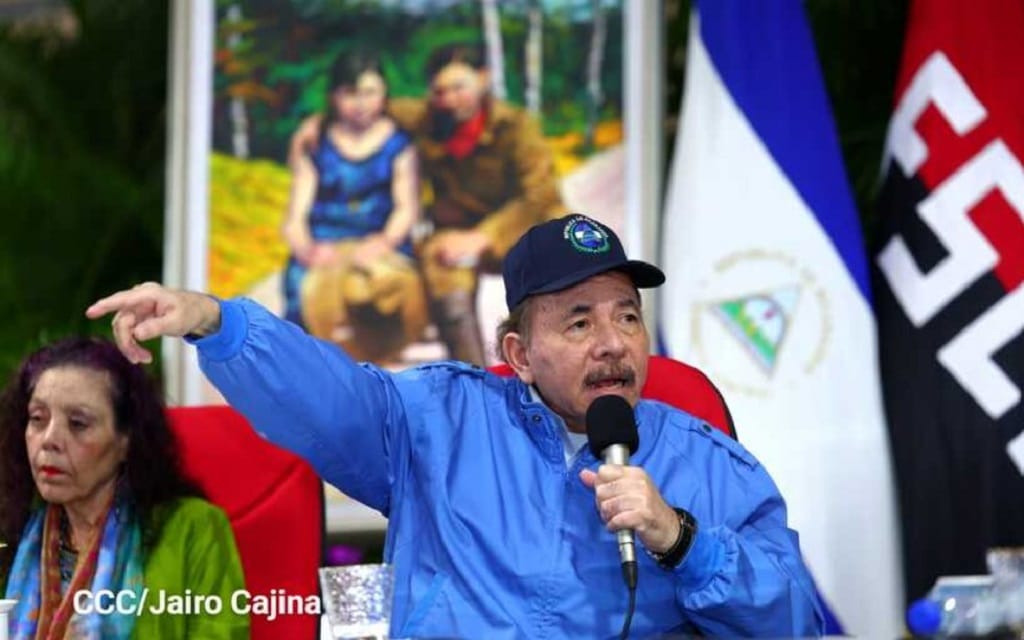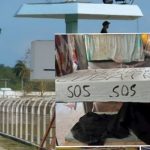Representatives of public institutions, official media and users on social networks, made use of “inflammatory rhetoric that (since 2018) stigmatized and incited hatred” against people in opposition or perceived as such -including defenders of DD. HH., journalists, religious and political leaders—, leading to a brutal repression in the country, maintains the Group of Experts on Human Rights on Nicaragua (GHREN, for its acronym in English) in its final report on human rights violations in Nicaragua.
The hate speech “was part of a communication strategy that included the implementation of disinformation and stigmatization campaigns through social networks, institutional spaces and media related to the Government,” the experts detail. To this end, guidelines were issued to officials and pro-government media on the information that should be disseminated and the way in which it should be articulated.
The Group appreciates that the Nicaraguan authorities developed “a discourse of building the enemy”, ascribing responsibility for the acts of violence to people in the opposition or perceived as such, whom they branded as “coup plotters” and “traitors”. Over time, they expanded this category “to encompass an increasingly broad group of people who were subjected to defamation, disqualification, and serious public accusations by the authorities,” they continue.
Many people were also the target of “targeted smear and harassment campaigns through social networks and pro-government media,” experts say.
“Taking into account the general context of repression and impunity in the face of attacks by the sector of the population aligned with the Government against the opposition population, the GHREN considers that the speech described may constitute incitement to violence.” underline.
In addition, the opponents were subjected to “intimidation, threats, surveillance and attacks” by the police, members of pro-government groups and local structures related to the Sandinista National Liberation Front (FSLN), such as the Citizen Power Councils, Electoral Victory Units, Youth Sandinistas and the Sandinista Leadership Committees.
Journalists, feminists and religious in the crosshairs
The GHREN documented more than 100 cases of people in opposition or perceived as such, who were subjected to intimidation and harassment by the Police, pro-government groups and local FSLN structuresamong which journalists, feminists, religious leaders, students, artists, members of parties, political movements and civil society organizations, lawyers and lawyers, and relatives of victims of human rights violations and abuses stand out.
The criminalization, stigmatization, threats and constant harassment of opposition members, or those perceived as such, implied that “not only could they not participate freely in the social and political life of the country, but they could not develop their lives in a normal way”, they emphasize. The experts. In addition, the interviewees expressed that they were afraid to leave their homes and, fearing reprisals, some were forced to change their residence several times or had to leave the country.
“The patterns of harassment were particularly severe in the case of those released from prison, who were subjected to permanent surveillance, attacks, threats, loss of employment, and loss of access to higher education. All of this prevented them from rebuilding their life project and had serious impacts on their family life”, emphasize the UN experts.
Also the relatives of victims of rape and abuse, and the organizations that accompanied them, were a specific target of attacks. “This disproportionately affected women, who often led the demand for the right to justice. In the same way, the lawyers of people detained for political reasons were subjected to reprisals”, points out the Group.
GIE warned about hate speech in Nicaragua
The GHREN findings reinforce what was stated by the Interdisciplinary Group of Independent Experts (GIEI)of the Inter-American Commission on Human Rights (IACHR), which in its final report of 2018 warned that the speeches of Daniel Ortega and Rosario Murillo They aimed at creating a negative image of the citizenry.
“Terms are used that begin by minimizing the adverse figure. They are tiny groups, they are mediocre, they are tiny. Then they start to have negative intentionality: they are perverse, destructive, toxic, poisoned, sadistic. Once defined with the charge of negativity, they are held responsible for the tragic events and criminalized. They are delinquents, criminals, gang members, members of organized crime and drug trafficking,” the GIEI explained at the time.
At the same time, the GIEI pointed out that the speeches of Ortega and Murillo saddle the opposition with the charge of betraying the ideals and achievements of Sandinismo. “They are envoys or allies of US imperialism, the one that finances them or from which they beg for resources. They are, the antichrist, the envoys of darkness”, the report describes.
Five years later, this stigmatizing discourse has materialized in criminal charges against opposition members that the regime considers “traitors to the homeland”, for which Law 1055 or Law for the Defense of the Rights of the People to Independence, Sovereignty and Self-determination for Peace.
“Differentiated citizenships are established,” warned the GIEI. “A citizenry is considered, by official discourse, as of good conscience because it approves and supports official actions; and the other, the dissidence that destabilizes, generates chaos, that responds to foreign interests and that comes to destroy what has been achieved”.
The regime continues to violate the human rights of Nicaraguans, more than 350 people were killed during the 2018 protests, more than a thousand were political prisoners, nearly half a million Nicaraguans have been forced into exile and 317 were stripped of their Nicaraguan nationality.
Dehumanization of the enemy
An investigation of CONFIDENTIAL published in November 2019 explains that, within hostile speech, there are several categories. The official discourse of the regime, designed by Murillo, fits into several of them.
Within what Gregory S. Gordon, who served as prosecutor of the International Criminal Tribunal for Rwanda, describes in his essay “Discourse on the spectrum of atrocity”, such as “general statements” that include the repetition of negative stereotypes, defamation of the victim group, and dehumanizing statements through “animalization” techniques and demonization. That seems to be Murillo’s specialty.
The list of insults was born on April 18, 2018, the day the protests against the government began and were violently repressed by members of the Sandinista Youth. A Rosario Murillo, with a notoriously obfuscated voice, in her usual telephone calls to one of her propaganda media, exclaimed: “That is perverse manipulation! Those tiny groups, those small, toxic souls, full of hate, do not represent the sentiment, the need for peace, work, and affection of the Nicaraguan people who have suffered so much.”
Citizen protests grew and, with them, epithets. For what purpose? The labels, the power uses them to control socially, explains the communication expert Mildred Largaespada. These insults seek to politically and socially stigmatize those who protest. Murillo “installs himself in the discourse of ‘us and the others’ and uses the labels to offer a quick and easy qualification to his social group to explain who all those who are protesting are”, she expands.
Ortega, although with fewer interventions, followed the same line in his speeches. In his November 7, 2021 speech on election day, he referred to opponents of his government as “sowers of death,” “sowers of hate,” “sowers of terror,” and “demons that They don’t want peace.” “In other countries they even apply the death penalty,” he said
Breaking of the social fiber
For him GHREN, the propagation of this hate speech repeatedly over time, and amplified through the media and social networks, has contributed to generating a climate of misinformation and hostility towards voices critical of the Government, propitious for the commission of other violations and abuses against them, such as arbitrary arrests and acts of harassment and intimidation.
The GHREN considers that “the defamation and discrediting of members of civil society had a silencing effect, not only on the people who suffered directly, but on society in general.” The analyzed discourse exacerbated political polarization and contributed to the breakdown of the social fiber.

















